What’s it like living in Casares?
Tracey is a very interesting character. She’s a horse expert specializing in horse care in Spain. She’s also run for local government, which has given her strong views on the authorities in Casares.
Lots of interesting topics are covered in this interview.

Name: Tracey Parker
Age: 61
Country of Origin: UK
Number of years in Spain: 26
Hi Tracey! You’ve mentioned to me that you have a long history with Spain. Can you tell me about that?
I first visited Spain just before my 18th birthday, over 40 years ago. I met some English people who, although a little older than me, felt as if I’d known them for years. Dare I say, they were old-school ex-pats, pathfinders and intrepid explorers who arrived when Franco was still in power, or, in the case of one couple, were shut out of Gibraltar when the border closed in ’69.
New to travel, I already knew I wanted to experience the “real” heart of any country rather than stick to the well-trodden tourist trails. Thanks to these wonderful people, I was introduced to Spain in a way few tourists get to see. I returned many times to visit them, each time exploring new areas of Andalucía.
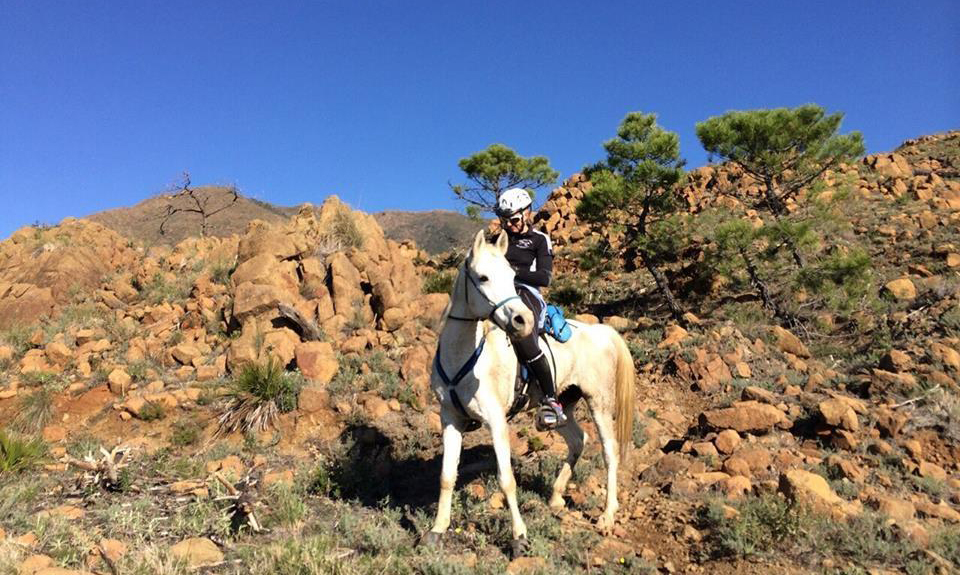
You’ve ended up in Casares. How and why did you choose this town as a place to live?
A nature lover at heart, I sought a place that would suit my horses, close enough to civilisation for daily life but with a sense of freedom. I finally moved to Spain permanently in 1998, my daughter going to school in Estepona. I found my way to the municipality of Casares, where I have lived since 2002. Work and personal circumstances have kept me here until now. However, knowing what I do now, I would not have chosen Casares as my home.
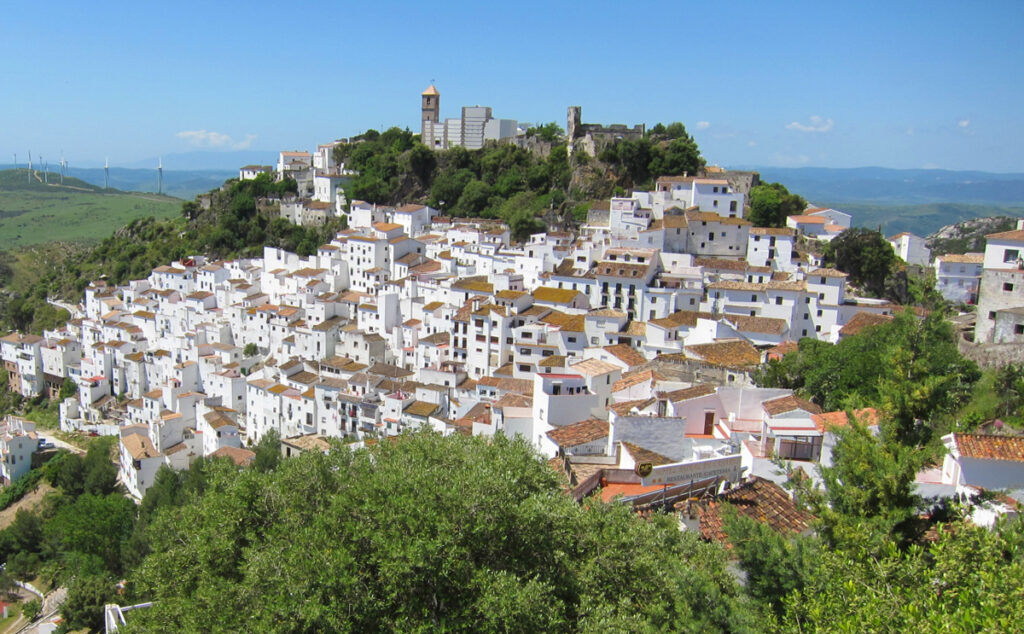

A few useful Resources
Buying Private health insurance in Spain. We recommend Innoinsure, they make it easy and offer different policies through various providers. And you don’t need a Spanish bank account – you can pay with foreign credit cards. More info here.
Spartan FX. Buying a house or car in Spain and need to transfer and exchange a large sum of money? More here.
Wise. For everyday transfers and exchanges of money from your home country. Nobody should be using banks anymore. More here.
I know you’ve had political run ins in Casares which have soured your views on the town (we`ll get to that soon). But previous to that, can you say you’ve been happy in Casares? What are its charms?
Casares is a rural municipality, the second-largest in Málaga province, with 160 square kilometres of terrain, of which only about 25 to 30 are developed, and the rest mostly abandoned! It’s a haven for birdlife and birdwatchers (a subject I keep telling myself I should learn more about, we have a wonderful variety of birds and carrion species, yet I know so little about them!). With many mountain trails once used by traders and smugglers, Casares offers hiking, mountain biking, and my own passion, horseback riding. Rock climbers also enjoy the high-grade routes here. There is peace, yet it’s only a stone’s throw from the coast and its amenities.
We were once fortunate to enjoy three top-notch restaurants here, but due to time, retirement, and health issues, they’ve all closed in recent years. However, there are still a couple of family-run ventas, which have been in the same families for over three generations, producing fabulous local dishes. The coast of Casares has little to offer in the way of eateries or entertainment, but flanked by Estepona to the east and San Luis de Sabinillas to the west, there are no shortage of options within minutes, along with the infrastructure of schools, pharmacies, supermarkets, hardware stores and of course the new corner shop, the Chinese supermarket!
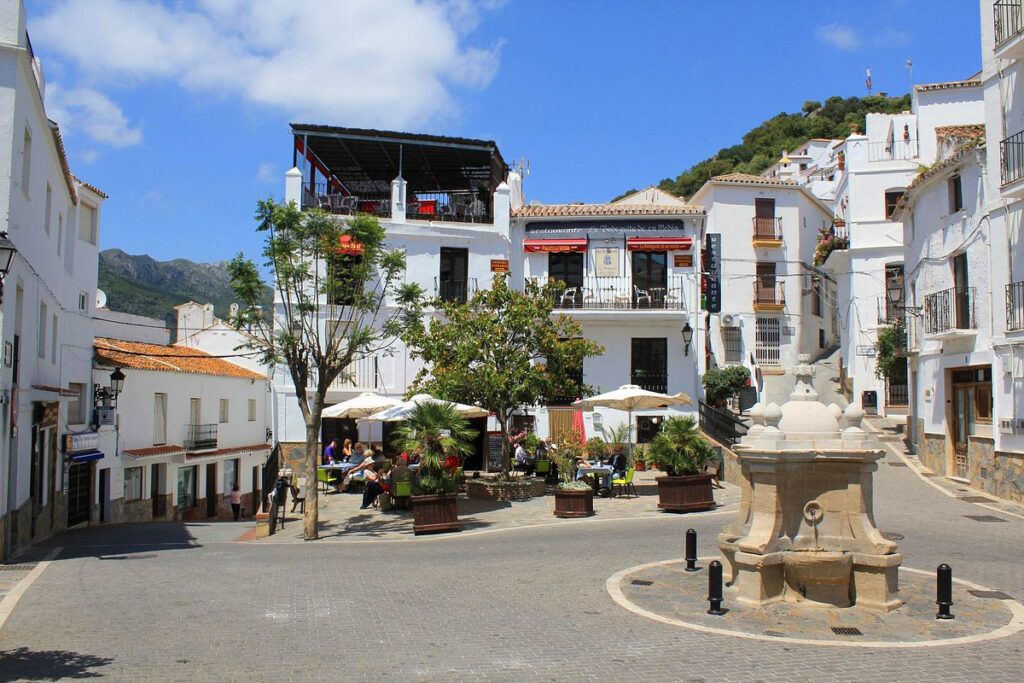
You’ve mentioned in passing your difficulties with the municipal government of Casares. You’ve also stated that your findings are ¨Not something that would encourage people to live in the municipality¨. Can you please elaborate?
The old town of Casares, once a charming white village, is slowly fading. Many properties stand empty as younger generations have left in search of work. There are only a handful of local businesses in the village, and the local council does little to encourage new ones. Locals call it “Mi Cortijo”, meaning “if you’re not from here, forget about it.” The IBI tax rates for people in Casares are higher than in Madrid, with countryside homeowners being especially penalised. We receive none of the infrastructure services found in the town (no street lighting, postal service, or paved streets) and must often take our waste to containers kilometres away, all while paying urban tax rates. Meanwhile, residents in town enjoy these conveniences and even a door-to-door refuse service. There’s a clear “us and them” divide if you’re not a card-carrying local.
It’s a shame because there is so much here that could be respectfully and uniquely developed.
I ran for local government nearly 10 years ago. I am not politically minded in the slightest, I naively believed that at “village” level, people would be looking out for the good of the village, for local business, industry, development. I was so wrong.
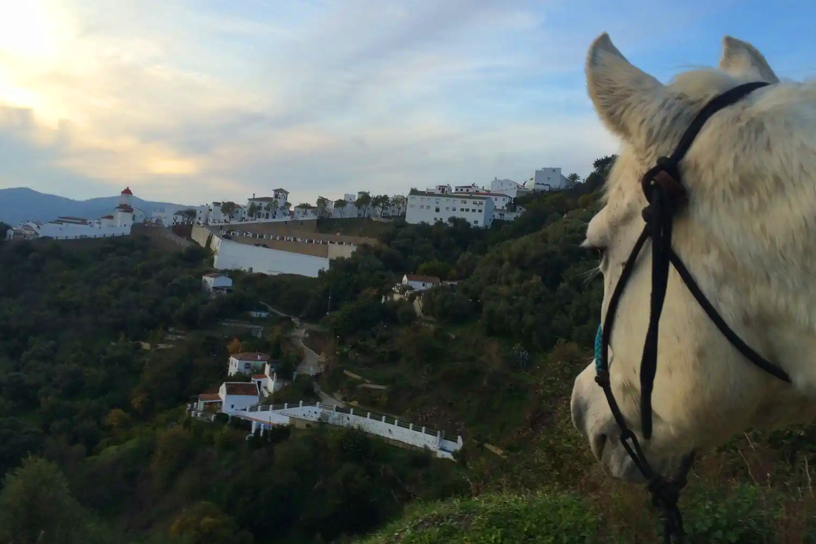
You’re no longer a fan of Casares but you’ve mentioned having a lot of familiarity with the whole area. Casares is well-known to many, but are there maybe some nice municipalities that people looking to base themselves may not be aware of? Any recommendations?
My partner and I have often arrived unannounced, crossing the mountains on horseback from Casares to the villages of Genalguacil, Estación de Gaucin, Benarrabá, Jubrique, and more. In each place, we were welcomed warmly. In Genalguacil, unsolicited, the local police kindly asked neighbours to move their cars so we could tie up the horses in the shade. In Benarrabá, a child ran into town after spotting us on the pass, returning with his father carrying a bale of hay. Memories like these, filled with the kindness of strangers, are among my most cherished.
Genalguacil is known as the “Living Art Museum,” and Benarrabá for its quality charcuterie, especially hams. The Internet makes it easy to discover the richness of the wonderful villages of the Genal Valley.
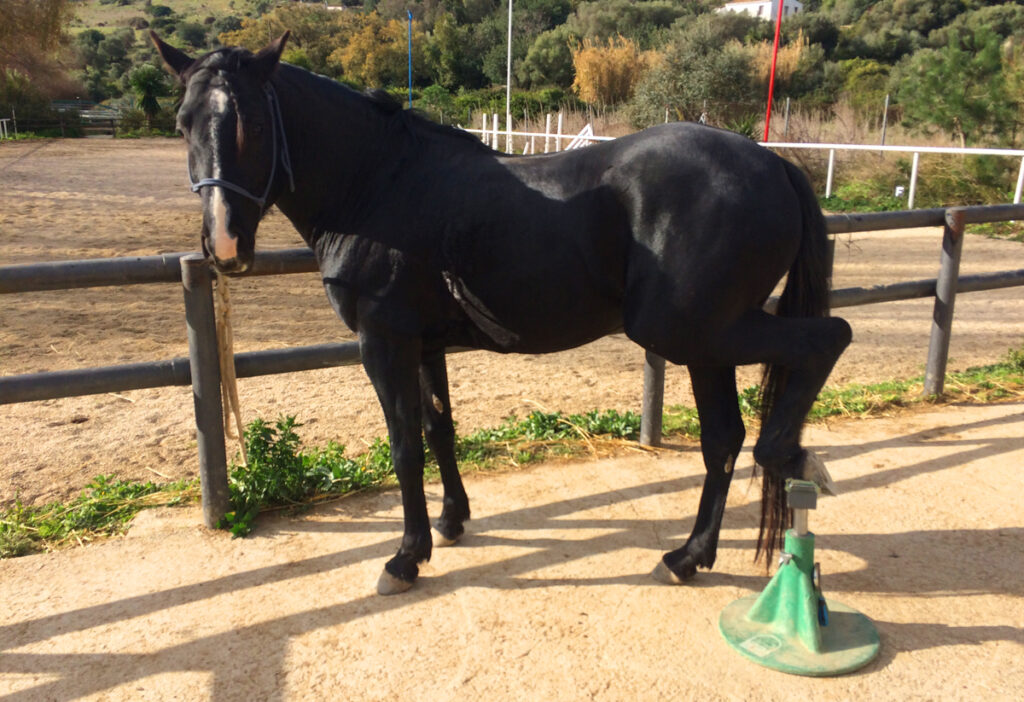
You’re an expert on horses and have written a very detailed book on everything involved with having horses in Spain (you mention having been coaxed by friends into writing a book because of your expertise on the matter). Can you explain some of the issues particular to Spain and horses that you address in your book?
For years, friends and clients have encouraged me to write a book on horse hoof care, my specialty. This task will be a serious responsibility, taking time to extract all my knowledge in a way that’s accessible for everyone while knowing where to draw the line.
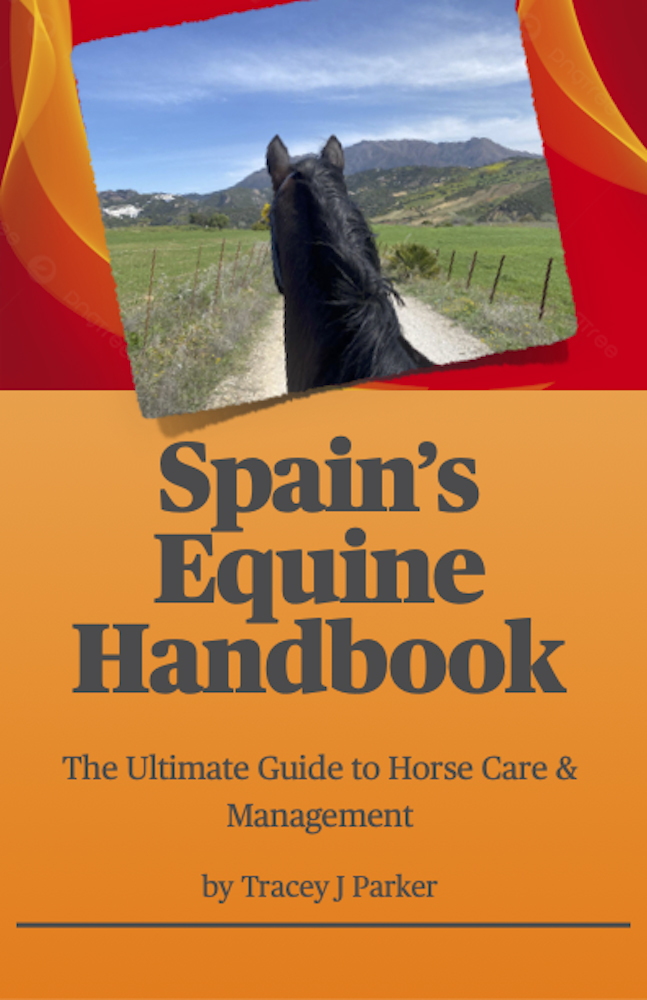
Hoof care involves nutrition, environment, mental and physical health, biomechanics of both horse and rider, and much more. Writing Spain’s Equine Handbook was a warm-up for this. While much information can be Googled, I realised that compiling all the unique considerations of horse ownership, care, and competition in Spain into a single resource would be valuable to many. Friends often say I’m the “El libro gordo de Petete”* on these topics! Spain is notorious for its bureaucracy, which changes constantly, and the climate here brings its own challenges for both horses and people. Spain’s continental thermal regime, influenced by the Mediterranean and Atlantic, creates weather patterns unique in Europe.
*A character created in the 1970s by Manuel García Ferré, delivering encyclopedia-like knowledge to children in small doses via short films.
Finding suitable forage and hard feed is a constant puzzle, complicated by regional language quirks. Emergencies, especially fires, are a sad reality in this country, and having a plan is essential. Knowing how to find vets and complementary equestrian health services can also be challenging here. Information on poisonous plants, equine viruses, all this and much more can be found in my guidebook.
Editor’s Note: Tracey’s book can be found on Amazon, either by Kindle or paperback. It can also be purchased through Apple books.
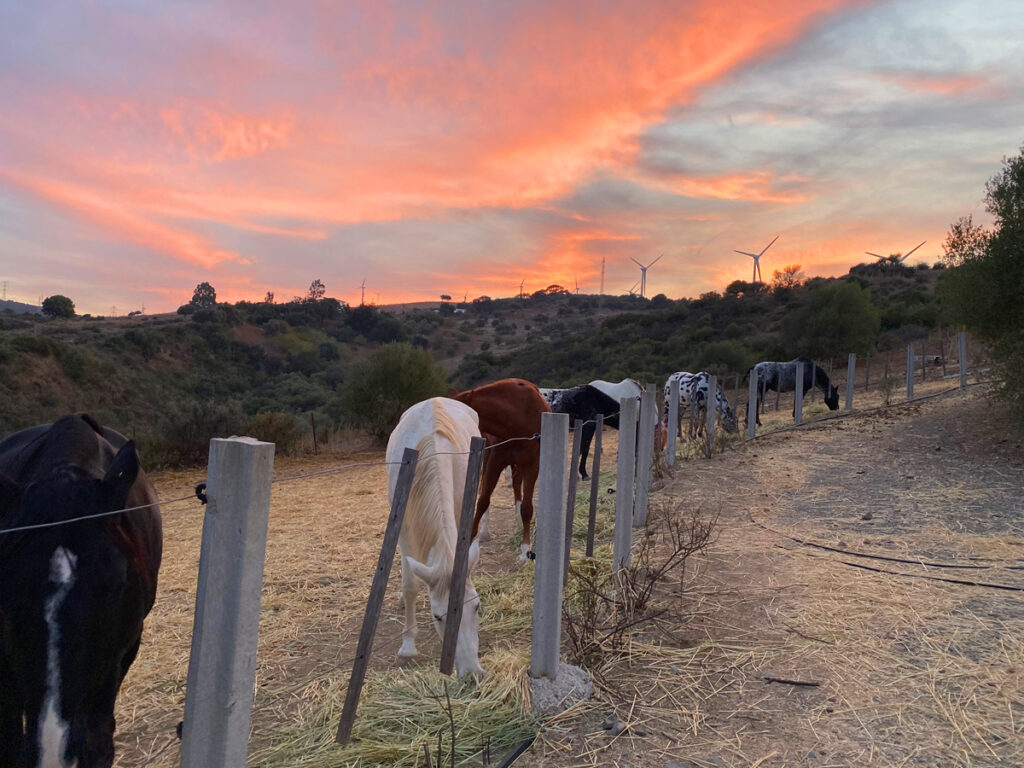
I sense you have frustration with government and bureaucracy in Spain. What’s your biggest beef? What do they do wrong in Spain?
As a “country girl,” I get frustrated by the rise of “desktop ecologists” advising the government, despite lacking true knowledge of rural maintenance and health. The invasive cañas (river canes) lining our rivers are one example. These plants easily snap, creating dams that divert or block water, leading to flash floods when they break free. They crowd out native plants that would better stabilise riverbanks, such as vetiver and oleander. Ecologists have had cañas protected, yet the equally non-native pampas grass, which does retain soil, is deemed invasive.
Both arable and livestock farming practices in this region are often harsh on the land. Cereal crops are harvested right down to the soil, with no rotation or fallowing, and the soil is turned annually. Wind erosion strips the topsoil and nutrients away long before new crops can establish. When I buy bales of hay filled with rocks, metal, and sometimes discarded shoes or clothing, it’s both expensive and stressful, as hay is sold by the kilo. Livestock is often left to graze fields until they dig up roots. Techniques like regenerative grazing, permaculture, mulching, crop rotation, and reduced tillage could make farming here much kinder to the environment, more sustainable and cost-effective in the long run.
Goat herders are no longer allowed to graze their flocks along riverbanks. Instead, government crews cut down the paths along rivers and leave the cuttings, adding to fire risks.
Trying to address these issues feels futile; civil servants pass the responsibility between local, provincial, regional, and central governments. And when you finally identify the right one and manage to get an appointment, you might find that the only official who can help has just gone on their breakfast break!
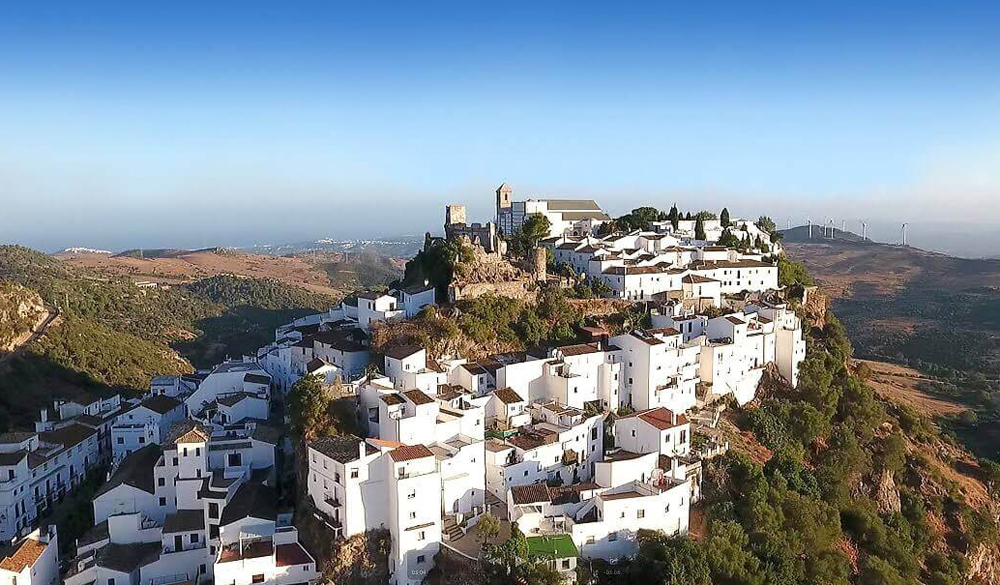
Despite everything you’ve been in Spain on and off for 40 years. What do you love about Spain? Do you think you’ll always live in Spain?
Spain has its governmental flaws, as does every country. And while I could say, “It’s better to moan in the sunshine than in the rain,” Spain is so much more than its government. And, of course, the sunshine helps. I moved here for a safer environment for my daughter to grow up in, and one still full of opportunities. I learned Spanish as soon as I could, which has been essential, not only for communication and work but also for navigating the many surprises life throws our way. It’s part of Spain’s charm.
I don’t know if I’ll always live here. Spain has been good to me, and I can’t imagine ever returning to the UK, but who knows? Somewhere else may call to me in the future!
Thank you for doing this interview Tracey!
Related: What’s it like living in Bilbao?
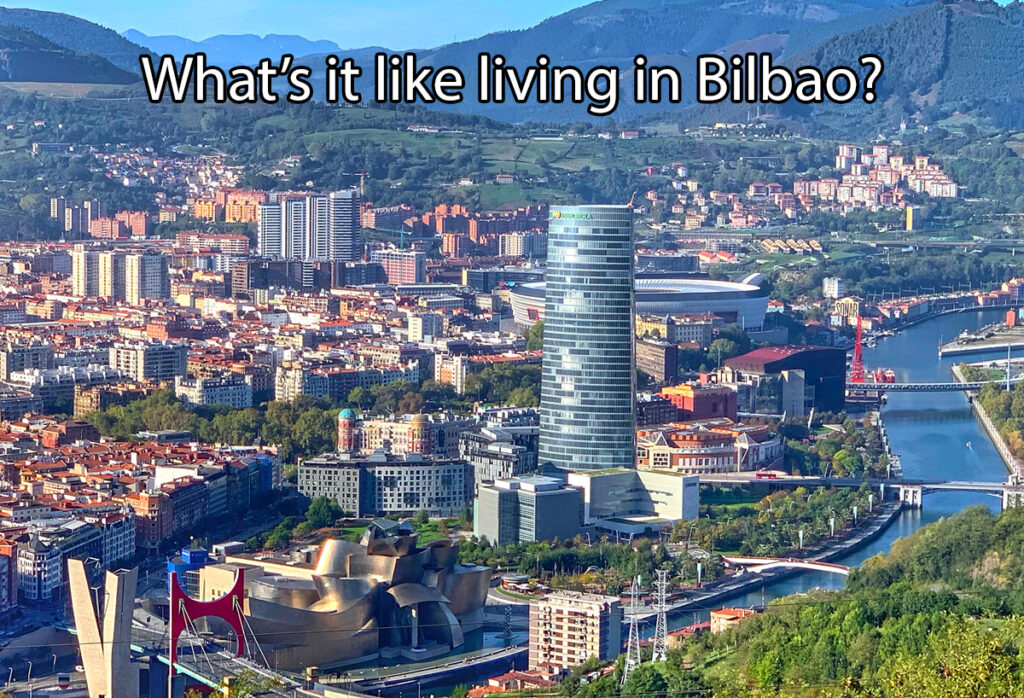

Hello!!!
I’m Enrique and I’d like to talk to Tracey because I’m thinking about moving to Casares!!!!
Thanks 🙂